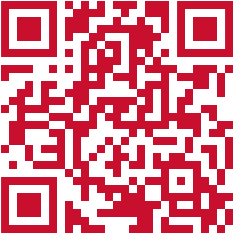How student organizations can collaborate:
- STEM Field Trips
Student organizations might consider assisting with STEM Field Trip series. Membership from various organizations have assisted as volunteers and/or developed and led addition workshop sessions. - Additional One Day Events
Membership might consider assisting with day long outreach events planned for the academic year including but not limited to the following.- Building Bridges
- Engineering for Everyone Expo
- Boston Science Fair Activity Expo
- Guidance on program evaluation
- Additional Assistance: Seek assistance from The Center for STEM with the identification of partner schools, curriculum content for outreach, advertising for your outreach events and/or training of membership to support your outreach initiatives.
- Collaboration with STEMOut
- STEMout is a club for students who want to design or volunteer for outreach efforts in the Boston community. In collaboration with the Center for STEM Education we regularly bring K-12 students from Boston schools to campus to engage in fun, hands-on learning activities run by Northeastern students.
- In addition to coordinating volunteer participation for outreach events, STEMout seeks to serve as a one-stop resource for student organizations hoping to develop and implement their own outreach efforts. We centralize and streamline the process of engaging in STEM outreach, which can otherwise often be impeded by regulations and school policies. By working with us to start working with the community, you can ensure that your experience will be as easy, fast, and effective as possible.
If you are interested in working in collaboration with us, please contact Nicolas Fuchs ([email protected]).
CoE Leadership Workshop Powerpoint Slides
Considerations for community outreach?
Benefit to community, benefit to you as students, benefit to faculty and the university
You and your fellow club/organization members have an idea for a great event to host on campus and/or in the community. The first step in event planning includes brainstorming together and writing everything down.
- What type of program/event?
- Intended audience?
- One time offering and/or series?
- Age level?
- Contacts?
What is your Motivation?
- What motivates your organization to engage in community outreach?
- It’s part of our mission
- It’s a good thing to do
- I am able to/I am good at it
- It makes me feel good
- To support youth and the community
- What prevents you from engaging?
- We don’t have the time
- We don’t have the capacity
- We don’t have the money/there’s no room in our budget for this
- We don’t know what to do
- We don’t know how to do it/how to do it well
Factors to consider
- Who is the intended audience? Working with Minors?
- What does your intended audience want? Does this meet their needs?
- Is this event aligned with your organization’s mission? The University’s mission?
- Will this help develop leadership skills?
- When/where do we want to hold the event? Is space available / conflicting events?
- Dates for other events on campus? Other events in the community?
- How much money will we need?
- Where are we going to look for funding?
Other questions to consider
Do you offer your event alone or partner with another organization or established outreach effort?
- Ex: STEM Field trip series, Cambridge Science Festival, After-School Programs, etc.
- Other Campus departments and organizations that might assist you in reaching this audience.
- Office of Community Affairs
- University Scholars/Honors Program
- Service Learning
- Student Advisory Committee
Other Challenges
Do we need additional training and/or resources to offer this event?
- Involving regular members/younger students in meaningful ways
- Sustained support – keeping people engaged
- Communication with members, other groups
- Funding to support time/travel/expenses
- Working with Minors (next slide)
How do you know your intended audience might be interested?
- Office of Community Affairs/University Scholars – Partner Survey
- Center for STEM – partnership request
Working with minors, things you MUST complete.
- Register the program with the Office of Risk Services
- Secure Consent to Participate forms from the parents/guardians of the participating minors
- Members helping at the event must complete a Self-Disclosure Form
- If you are proposing to teach, coach, supervise, mentor or otherwise have direct, potentially unsupervised contact with minors, members must complete the following:
- Complete training on recognizing and reporting child abuse and neglect (Mandatory Reporter 51A)
- Undergo a Criminal Background Check (CORI) in the program
How will you measure success? Evaluation and Assessment
Quantitative & Anecdotal Feedback; Michael Quinn Patton, in his Utilization-Focused Evaluation (2008 p.5) states that in the simplest terms, evaluation answers three questions: What? So what? Now what?
- What: What happens in the program? What services and experiences does the program offer? What activities and processes occur? What outcomes and impacts result? What unanticipated outcomes emerge? What are the program’s documented costs and benefits?
- So what: What do the findings mean? Why did the results turn out as they did? What are the implications of the findings? What judgments can be made? To what degree and in what ways can the program be considered a success? A failure? A mixed bag of positives and negatives? How does this program compare to other programs? What sense can we make of the findings?
- Now what: What recommendations can be made from the findings? What improvements should be made? Should funding be continued, expanded, reduced, or ended? Should others adopt the program? What do findings from this project suggest for other or future projects? In short, what actions flow from the findings and their interpretations?

